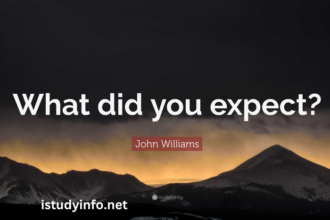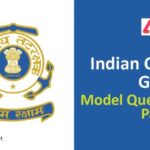Autobiographies offer readers a unique glimpse into the lives of others, allowing us to walk in their shoes, feel their struggles, and celebrate their triumphs.An Incomplete Life: The Autobiography is no different, but it takes a deeply introspective path.�
This piece of work doesn’t just recount accomplishments or accolades, but also explores the unfinished elements of a person’s life, the questions that remain unanswered, and the personal challenges that shaped them.�
Through the lens ofAn Incomplete Life: The Autobiography, readers can reflect on their own lives, coming face-to-face with the reality that not everything gets tied up neatly in the end.
3 Key Points:
- An incomplete life can be deeply fulfilling despite the uncertainties.
- Autobiographies reflect both the successes and the unresolved aspects of life.
- Understanding one’s journey is an ongoing process of growth.
What is “An Incomplete Life: The Autobiography”?
An Incomplete Life: The Autobiography serves as a narrative of personal evolution that has its share of open-ended chapters. Unlike many autobiographies, this one doesn’t merely dwell on milestones but emphasizes the struggles left unresolved.�
The keyword “An Incomplete Life: The Autobiography” highlights the significance of embracing life’s imperfections. Life, after all, is often more about the journey than the destination.�
The author of this autobiography challenges the notion that life must be neatly summarized and instead celebrates the journey, in all its incomplete beauty. The idea of leaving some stories untold speaks to the human condition itself: we are constantly in flux, constantly growing, and never truly “finished.”
What Does “An Incomplete Life” Truly Mean?
The concept ofAn Incomplete Life often evokes a sense of incompletion, but here, the focus shifts from regret or loss to the beauty of what remains unresolved.�
The keyword “An Incomplete Life: The Autobiography” challenges readers to rethink their perspectives on what makes a life worth telling. Life is often seen as a series of accomplishments, but this autobiography breaks away from that mold.�
Instead, it highlights the fact that life’s richness comes not only from achievements but also from its questions, struggles, and incompletions. This perspective makes the autobiography unique, as it invites readers to reflect on their own ‘incomplete’ journeys.
Why Do People Feel a Sense of Incompletion in Their Lives?
People often associate completion with happiness or success. However, as the book explores, a sense of incompletion is an intrinsic part of the human experience. The very title,“An Incomplete Life: The Autobiography,” tells us that it’s okay to not have all the answers and that our life stories are, by their nature, always evolving.�
The autobiography delves into the idea that incompletion doesn’t signify failure but rather potential for growth. The author reflects on unfulfilled dreams, unresolved conflicts, and life goals that shifted over time, painting a picture of a life lived fully, even if not all chapters were neatly tied up.
How Does This Autobiography Compare to Traditional Autobiographies?
Autobiographies tend to focus on recounting one’s life chronologically, highlighting major achievements, and culminating in some form of resolution.The keyword “An Incomplete Life:�
The Autobiography” deviates from this structure. Instead of focusing on clear-cut successes or defining moments, the author opts to portray their life through a series of ongoing, unresolved narratives.�
In comparison to traditional autobiographies, this book offers a more realistic reflection of how many people experience their own lives—fluid, ever-changing, and filled with uncertainties. It’s a refreshing take that gives more weight to personal growth and transformation than to fixed moments of success.
What Are the Major Themes in the Book?
The overarching theme of“An Incomplete Life: The Autobiography” is self-reflection and acceptance. Life is portrayed not as a straight path but as a series of winding roads that may lead to unexpected places.�
Other major themes include resilience in the face of adversity, the importance of personal growth over time, and the power of introspection. The book also explores relationships, career setbacks, personal dreams, and health struggles.�
These elements are woven into the narrative, providing readers with a comprehensive view of the author’s experience. Each theme underscores the fact that no life is ever truly “complete”—and that’s okay.
How Does “An Incomplete Life” Encourage Self-Reflection?
The autobiography serves as a mirror, encouraging readers to look within and acknowledge their own unfinished stories.�
The structure and tone of“An Incomplete Life: The Autobiography” invite readers to reflect on what they’ve left undone in their own lives. Whether it’s dreams they’ve yet to chase or personal issues they’ve not fully resolved, this book helps readers realize that their sense of incompletion can lead to personal growth. It’s not about having all the answers but about being open to the journey of seeking them.
What Role Does Personal Growth Play in the Story?
Personal growth is at the core of“An Incomplete Life: The Autobiography”. The author doesn’t shy away from discussing the challenges and failures that shaped them.�
Personal growth isn’t portrayed as a straight upward trajectory but as a process filled with detours and setbacks.�
The autobiography highlights the fact that personal growth often comes from moments of uncertainty or incompletion, reinforcing that life’s value isn’t tied to a final product but to ongoing progress.
Does the Author Achieve Closure by the End of the Autobiography?
Interestingly,“An Incomplete Life: The Autobiography” doesn’t offer any final resolution or closure. This choice is deliberate, allowing the author to stay true to the book’s theme that life is never truly “complete.”�
The book closes with more questions than answers, leaving readers to ponder the uncertainties that accompany every human journey. This open-endedness invites readers to continue their own stories, realizing that the pursuit of closure is, in itself, a continuous process.
How Can Readers Apply Lessons from “An Incomplete Life: The Autobiography” to Their Lives?
By reading“An Incomplete Life: The Autobiography,” readers are encouraged to accept their own imperfections and uncertainties. The book teaches us that life is about progress, not perfection. Readers may find themselves reflecting on their own life decisions, asking how they can embrace their unfinished chapters with grace rather than regret.�
The lessons in the book can help people understand that it’s okay to not have everything figured out and that growth often comes from uncertainty. It also empowers readers to embrace their ongoing journeys and look at life from a more compassionate perspective.
Conclusion
In conclusion,“An Incomplete Life: The Autobiography” provides a deeply reflective, heartfelt narrative about life’s ongoing journey.�
It challenges the notion that autobiographies need to end with definitive answers, instead highlighting the beauty in life’s incompleteness. The book encourages readers to look beyond conventional success, to find meaning in both the struggles and the questions that remain unresolved.�
It reminds us that life is constantly evolving and that personal growth is an ongoing process. By embracing our unfinished stories, we open ourselves to a richer, more fulfilling experience of life.
FAQs
- What makesAn Incomplete Life: The Autobiography different from other autobiographies?
This autobiography focuses on unfinished aspects of life, offering a more realistic portrayal of ongoing personal growth. - Why is the titleAn Incomplete Life: The Autobiography significant?
The title reflects the central theme that life is full of unresolved moments, and that’s where much of its richness lies. - DoesAn Incomplete Life: The Autobiography provide closure at the end?
No, the autobiography deliberately avoids closure, emphasizing that life is always evolving and never fully complete. - How canAn Incomplete Life: The Autobiography inspire self-reflection?
The book encourages readers to embrace their own unresolved issues and view life as a journey of ongoing growth. - What lessons can readers take away fromAn Incomplete Life: The Autobiography?
The key lesson is that life’s value is found in progress, not perfection, and personal growth is a continuous process.














